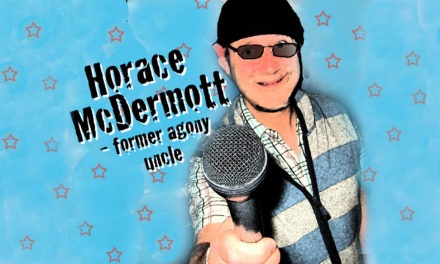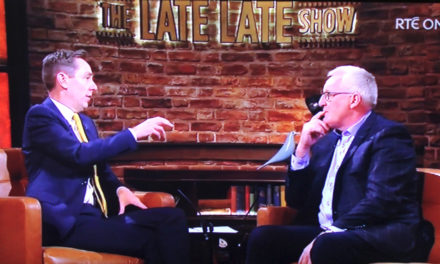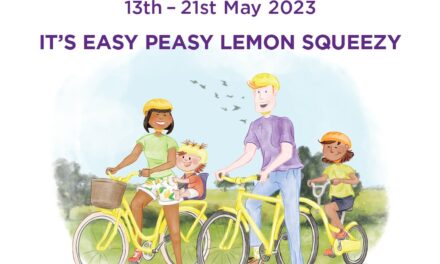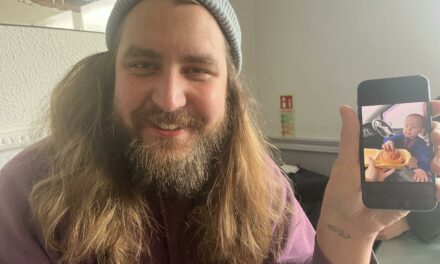Wild Work, a project now in its fourth year, is a not-for-profit initiative of South East Cork Area Development (SECAD) and it was among 200 projects from across Europe recently showcased online. The project proves that biodiversity is truly for everyone, says Ryan Howard, SECAD’s CEO. Read Beth Ardill’s report and you have to agree.
Helping nature is only part of Wild Work’s goal.
“We see helping people as just as important,” says William O’Halloran, co-ordinator.
The project is a success in large part because it gets across-the-board support from all members of a community. This includes local civil society groups, businesses, local government, the farming sector, academia, members of the public and more.
Wild Work’s parent organisation, SECAD, is a local development company that provides rural development and social inclusion supports for a more vibrant, sustainable and inclusive society. Established in 1995, SECAD has worked with and developed strong relationships with over 500 local community groups. In recent years, it has seen a surge in enthusiasm among these groups to help nature, whether it be tackling invasive species, helping struggling native species like bees and butterflies, or planting trees.
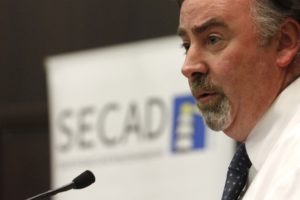
Ryan Howard, CEO of SECAD. Photo by Darragh Kane.
“When it comes to nature and what happens in nature, it does not matter what your socio-economic background is, what size your house is or what type of car you drive. It just brings people together. The environment is a great place for people to have a common conversation,” says Ryan Howard, CEO of SECAD.
Examples of Wild Work’s activities over 30 months include:
204 education and awareness sessions,
12 five-year biodiversity action places,
6 habitat mapping projects,
29 recommendations reports,
57 nature-friendly landscaping projects for pollinators and other wildlife,
5,562 consultation hours provided,
1,550 wildflower seed packs distributed,
and 18,450 metres of wildflower seed sown.
Mr. O’Halloran explains: “With our practical expertise, we create and care for meadows, woodlands, beaches, rivers, and other natural habitats, both in urban and rural settings. We strive to work in line with best practice, with nature and not against and value research as a key component of our work. We always aim to understand the bigger picture so that we can do the right thing.”
There has never been a better time for getting involved in biodiversity projects, say Wild Work. Its social ethos is all about supporting people: “We provide quality work experience opportunities for people and aim to contribute to the creation of fulfilling jobs, particularly in the bio-diversity sector, says Mr. O’Halloran.
Feel-Good Factor
It is also about educating and raising awareness.
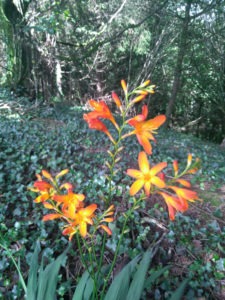 As Mr. O’Halloran says, “We work with nature and the environment in a positive way to have a real and practical impact on environment issues. Increasing people’s awareness, respect and understanding, helps them care more effectively for the natural world,” he says. Another ethos of Wild Work is benefiting society and nature.
As Mr. O’Halloran says, “We work with nature and the environment in a positive way to have a real and practical impact on environment issues. Increasing people’s awareness, respect and understanding, helps them care more effectively for the natural world,” he says. Another ethos of Wild Work is benefiting society and nature.
“We want to foster people’s good will to ensure that our local flora, fauna and habitat are protected, valued and enhanced. We want people who connect with the Wild Work movement to have a feel-good factor, to enjoy the social aspect and to benefit from better health and well-being.”
He points out that SECAD has over 20 years’ experience of successful collaboration with local community and voluntary groups, disadvantaged groups, job seekers, businesses (including private and social enterprise), farmers and schools. The organisation leans on this experience to ensure Wild Work taps into local communities in ways that have a real impact on environmental issues.
SECAD in conjunction with Cork County Council and the communities of Passage West and Carrigtwohill, organised a planning process which led to the development of a strategic five-year Town and Village Renewal Plan for these towns. Wild Work spoke with the communities to contribute to the development of a biodiversity action plan for Passage West and Carrigtwohill.
Wild Work also have a programme called Stepping Stones which uses the natural environment as a “hook” to engage with people experiencing marginalisation. In turn, that encourages them to consider other services and look at their own personal development with more confidence and motivation.
This programme aims to stimulate people’s own personal development and “inspire them to actively help themselves, help nature and help their local community”.
Overall, Wild Work believes that by helping people to help nature it helps people by bringing wildness back into their lives.
If your surroundings feel a little tame, visit: http://www.wildwork.ie/
What is Community-Led Local Development?
Features of Community-Led Local Development (CLLD) are that it is area-based, bottom-up, public-private, integrated, innovative, co-operative and involves the use of networking.
It involves directing funding to local community projects via partnerships between EU authorities, NGOs and groups on the ground with the overall aim of realising the long-term potential of their area.
The Commission’s recognition of CLLD is based on the rationale that tackling complex issues such as poverty, deprivation or unemployment, needs an integrated and inclusive approach involving many local actors.
More info: http://bit.ly/KJ5xXs


